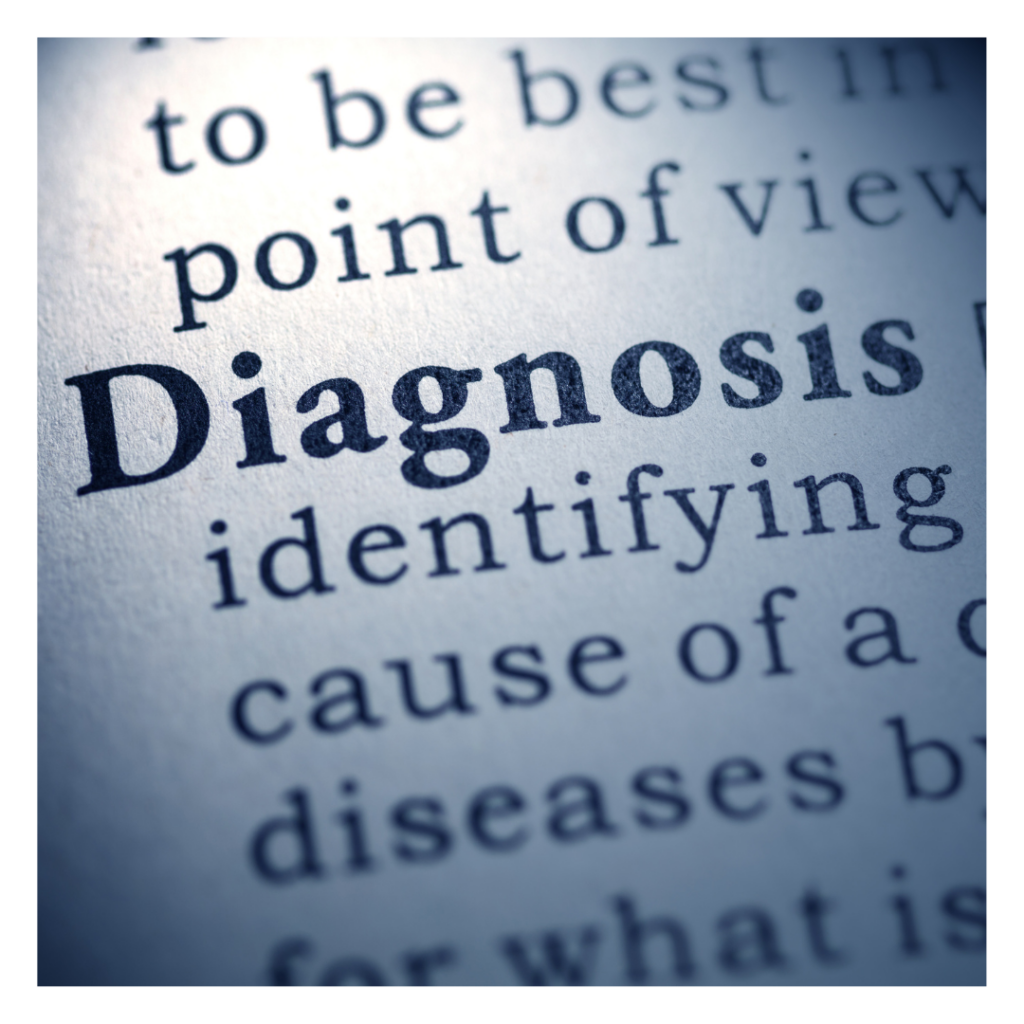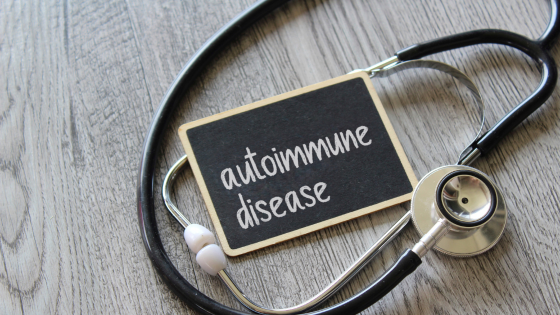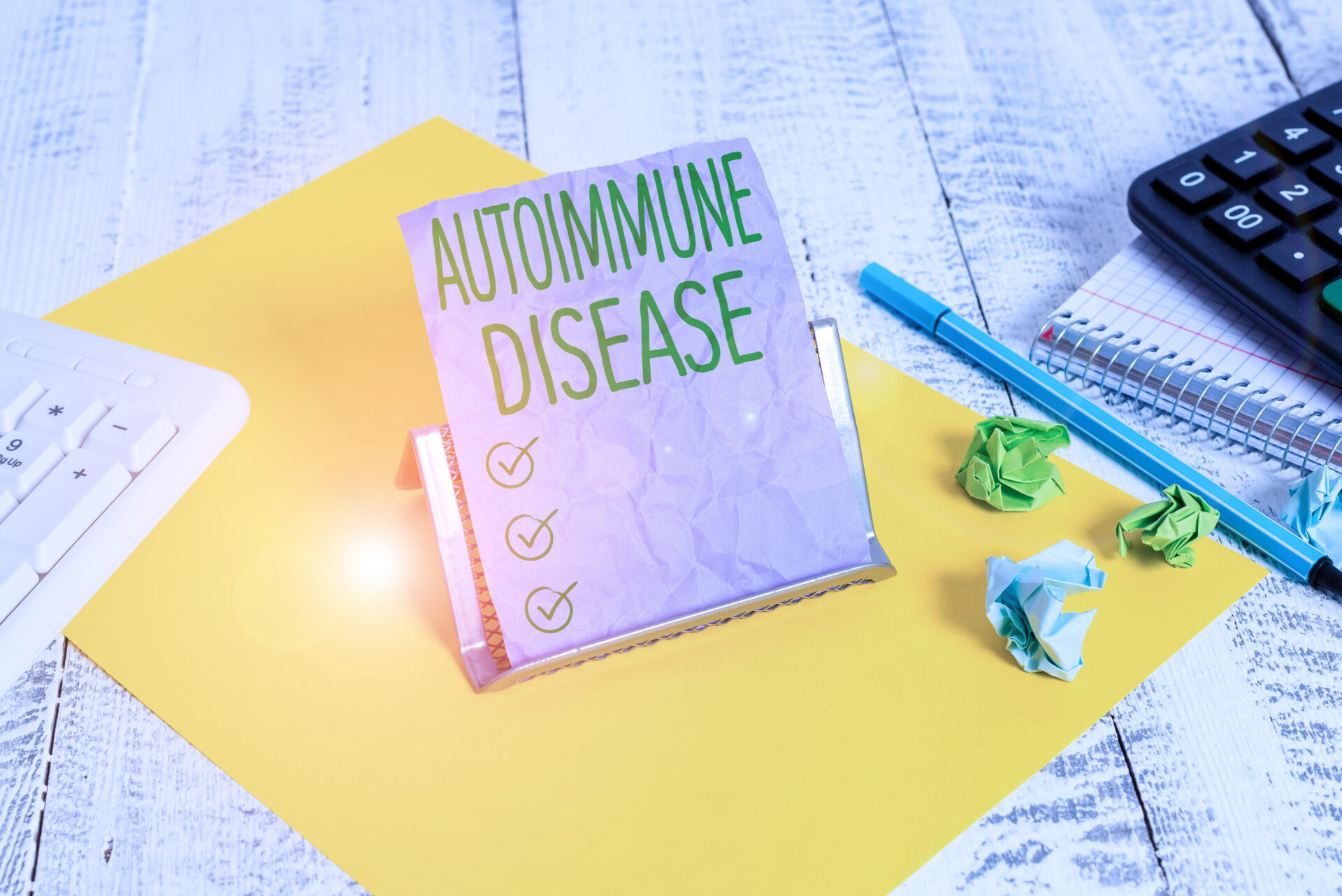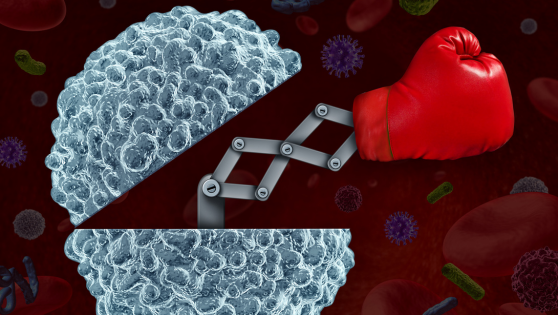Introduction
Autoimmune disease affects millions worldwide, yet their complexities often remain misunderstood. These conditions, where the immune system mistakenly attacks the body’s own tissues, can manifest in diverse ways, affecting various organs and systems. From rheumatoid arthritis to lupus, autoimmune diseases pose significant challenges to both diagnosis and treatment, impacting the lives of individuals and families alike.
In this blog, we delve into the world of autoimmune disease, exploring their causes, symptoms, diagnosis, and treatment options. Whether you’re newly diagnosed, seeking to understand a loved one’s condition, or simply curious about these often-overlooked disease, this blog aims to provide clarity and insight. By enhancing our understanding of autoimmune disease, we empower ourselves to support those affected and advocate for continued research and awareness.
What Are Autoimmune Diseases?
Autoimmune diseases are a group of complex conditions where the immune system, which typically defends the body against harmful pathogens like bacteria and viruses, mistakenly targets and attacks its own healthy tissues. This abnormal immune response can result in inflammation, tissue damage, and sometimes organ dysfunction.
Definition and Basic Explanation: At its core, autoimmune diseases arise from a breakdown in the immune system’s ability to distinguish between self and non-self. Normally, immune cells recognize and eliminate foreign invaders while sparing the body’s own cells and tissues. In autoimmune conditions, this distinction is lost, causing immune cells to mistakenly attack healthy cells, tissues, and organs.
Common Autoimmune Diseases: Autoimmune diseases encompass a wide spectrum of conditions affecting virtually any part of the body. Some well-known examples include:
- Rheumatoid arthritis: Targets joints, causing pain, stiffness, and swelling.
- Systemic lupus erythematosus (SLE): Affects multiple organs, including the skin, joints, kidneys, and heart.
- Type 1 diabetes: Attacks insulin-producing cells in the pancreas.
- Multiple sclerosis (MS): Targets the central nervous system, leading to nerve damage and neurological symptoms.
These are just a few among over 80 recognized autoimmune diseases, each with its own set of symptoms, triggers, and treatment challenges.
Understanding the fundamental nature of autoimmune disease sets the stage for exploring their causes, mechanisms, and impact on individuals’ lives. In the following sections, we’ll delve deeper into these aspects, providing insights into the complex world of autoimmune disorders and offering guidance on management and support.
Causes and Risk Factors
Understanding the causes and risk factors associated with autoimmune disease can provide valuable insights into why these conditions develop and who may be at higher risk.
Genetic Predisposition: Genetics play a significant role in the development of autoimmune disease. Certain genes are associated with an increased susceptibility to these conditions. While having a genetic predisposition doesn’t guarantee that you’ll develop an autoimmune disease, it can increase the likelihood, especially when combined with other factors.
Environmental Triggers: Environmental factors such as infections, toxins, and stressors can trigger or exacerbate autoimmune responses in genetically susceptible individuals. For example, viral infections like Epstein-Barr virus (EBV) have been linked to the onset of autoimmune conditions like systemic lupus erythematosus (SLE). Environmental pollutants and chemicals may also play a role in triggering autoimmune reactions by disrupting immune function or promoting inflammation.
Relationship with Infections and Stress: Infections can sometimes act as a trigger for autoimmune disease by causing the immune system to become dysregulated. Additionally, chronic stress has been implicated in worsening autoimmune symptoms, possibly through its effects on immune function and inflammation pathways.
Gender and Hormonal Factors: Many autoimmune disease disproportionately affect women compared to men. Hormonal fluctuations, such as those during puberty, pregnancy, or menopause, can influence the immune system’s activity and contribute to the onset or exacerbation of autoimmune conditions.
Autoimmune Cascade and Multiple Diseases: Interestingly, having one autoimmune disease can increase the risk of developing another. This phenomenon, known as autoimmune clustering or polyautoimmunity, suggests common underlying mechanisms and genetic predispositions among different autoimmune conditions.
Understanding these complex interactions between genetics, environment, and immune function is crucial for unraveling the mysteries of autoimmune diseases. Below we’ll explore how these factors contribute to the development and progression of specific autoimmune conditions, offering insights into diagnosis, treatment, and management strategies.
How Autoimmune Diseases Develop
Autoimmune disease develops when the immune system, which normally defends the body against harmful invaders like viruses and bacteria, mistakenly attacks its own healthy cells and tissues. This breakdown in immune tolerance can lead to chronic inflammation, tissue damage, and dysfunction of affected organs or systems.
Immune System Basics: The immune system is a complex network of cells, tissues, and organs that work together to protect the body. It includes specialized cells such as white blood cells (lymphocytes), which play crucial roles in recognizing and destroying foreign substances.
Mechanism of Autoimmune Response: In autoimmune diseases something triggers the immune system to produce autoantibodies—antibodies that mistakenly target and attack the body’s own cells and tissues. These autoantibodies can cause inflammation, tissue destruction, and disruption of normal cellular functions.
Role of Autoantibodies: Autoantibodies are central to the pathogenesis of autoimmune disease. They can directly damage tissues or organs by binding to specific antigens on healthy cells, marking them for destruction by immune cells or triggering inflammatory responses.
Immune Dysregulation: Underlying immune dysregulation, where the balance between immune activation and regulation is disrupted, is a hallmark of autoimmune disease. Factors contributing to this dysregulation include genetic predisposition, environmental triggers, and abnormalities in immune cell function.
Potential Triggers: While the exact triggers vary among autoimmune diseases, common triggers may include infections (viral or bacterial), environmental toxins, hormonal changes, and chronic stress. These triggers can provoke or exacerbate autoimmune responses in susceptible individuals.
Understanding the mechanisms by which autoimmune disease develops is essential for developing targeted therapies and interventions aimed at restoring immune balance and minimizing damage to affected tissues. In the next section, we’ll delve deeper into specific autoimmune conditions, their symptoms, diagnostic approaches, and treatment strategies to provide a comprehensive understanding of managing these complex diseases.
Types of Autoimmune Diseases
Autoimmune disease encompasses a diverse group of conditions that can affect virtually any part of the body. These diseases are classified based on the specific organs or systems they target, each presenting unique symptoms, challenges in diagnosis, and management approaches.
Classification Based on Affected Organs/Systems:
1. Rheumatologic Autoimmune Diseases:
- Rheumatoid arthritis (RA): Affects joints, causing pain, stiffness, and swelling.
- Systemic lupus erythematosus (SLE): Affects multiple organs, including the skin, joints, kidneys, and heart.
- Sjögren’s syndrome: Primarily affects the glands that produce tears and saliva.
- Ankylosing spondylitis: Involves inflammation of the spine and large joints.
2. Dermatologic Autoimmune Diseases:
- Psoriasis: Characterized by skin inflammation and the development of scaly patches.
- Vitiligo: Causes loss of skin color in patches.
- Dermatomyositis: Involves muscle weakness and skin rash.
3. Neurological Autoimmune Diseases:
- Multiple sclerosis (MS): Affects the central nervous system, leading to nerve damage and neurological symptoms.
- Guillain-Barré syndrome: Involves rapid-onset muscle weakness caused by the immune system damaging the peripheral nervous system.
- Myasthenia gravis: Causes muscle weakness due to antibodies blocking nerve signals to muscles.
4. Gastrointestinal Autoimmune Diseases:
- Crohn’s disease and ulcerative colitis: Inflammatory bowel diseases that affect the digestive tract.
- Celiac disease: An immune reaction to eating gluten, damaging the lining of the small intestine.
5. Endocrine Autoimmune Diseases:
- Type 1 diabetes: Targets insulin-producing cells in the pancreas.
- Hashimoto’s thyroiditis: Leads to inflammation of the thyroid gland and hypothyroidism.
- Graves’ disease: Causes overactivity of the thyroid gland (hyperthyroidism).
6. Hematologic Autoimmune Diseases:
- Autoimmune hemolytic anemia: Destroys red blood cells prematurely.
- Idiopathic thrombocytopenic purpura (ITP): Leads to a low platelet count and increased bleeding risk.

Each type of autoimmune disease presents unique challenges in diagnosis and management, often requiring a multidisciplinary approach involving rheumatologists, dermatologists, neurologists, gastroenterologists, endocrinologists, hematologists, and other specialists.
In the following sections, we’ll explore the symptoms, diagnostic criteria, treatment options, and lifestyle considerations for managing these diverse autoimmune conditions effectively.
Symptoms and Diagnosis
Recognizing the symptoms of autoimmune diseases is crucial for timely diagnosis and effective management. Symptoms can vary widely depending on the specific condition and the organs or systems affected.
General Symptoms Across Autoimmune Diseases:
- Fatigue: Persistent and debilitating tiredness.
- Joint pain and swelling: Common in rheumatologic autoimmune diseases like rheumatoid arthritis and lupus.
- Skin changes: Rashes, redness, and sensitivity, as seen in conditions like psoriasis and SLE.
- Digestive issues: Abdominal pain, diarrhea, and weight loss in autoimmune gastrointestinal disorders such as Crohn’s disease.
- Neurological symptoms: Weakness, numbness, and cognitive difficulties in diseases like multiple sclerosis and myasthenia gravis.
Healthcare providers typically rely on a combination of medical history, physical examinations, laboratory tests, and imaging studies to make an accurate diagnosis.
Common Diagnostic Tests and Procedures:
- Blood tests: Measure levels of autoantibodies and markers of inflammation.
- Imaging studies: X-rays, ultrasound, MRI, or CT scans to assess organ damage and inflammation.
- Biopsy: Removal of a small sample of tissue for examination under a microscope to detect autoimmune changes.
Special Considerations:
- Early detection: Prompt diagnosis is critical for initiating treatment early and preventing complications.
- Monitoring: Regular monitoring of symptoms and disease activity helps healthcare providers adjust treatment plans as needed.
- Patient advocacy: Advocating for oneself and seeking second opinions can be essential, especially if symptoms are persistent or there are concerns about diagnosis.
Understanding the symptoms and diagnostic process for autoimmune disease empowers individuals to work closely with healthcare providers in managing their health effectively. In the following sections, we’ll explore treatment approaches, lifestyle considerations, and the latest research in autoimmune diseases to provide comprehensive insights into living well with these complex conditions.
Treatment Approaches
Managing autoimmune disease involves a multifaceted approach aimed at controlling symptoms, minimizing disease activity, and preventing long-term complications. Treatment plans are tailored to each individual based on the specific autoimmune condition, its severity, and the organs or systems affected.
Overview of Treatment Goals:
- Symptom Management: Alleviating pain, inflammation, and other symptoms to improve quality of life.
- Disease Modification: Slowing or halting disease progression to prevent organ damage and disability.
- Improving Function: Enhancing physical function and maintaining independence.
Conventional Treatments:
- Medications: Nonsteroidal anti-inflammatory drugs (NSAIDs), corticosteroids, disease-modifying antirheumatic drugs (DMARDs), and biologic therapies target inflammation and immune system dysfunction.
- Immunosuppressants: Suppressing immune system activity to reduce autoimmune responses and inflammation.
Complementary and Alternative Therapies:
- Nutritional Therapy: Adopting an anti-inflammatory diet, such as the autoimmune protocol (AIP) diet, to support immune function and reduce inflammation.
- Mind-Body Therapies: Techniques like yoga, meditation, and acupuncture may help manage stress and improve overall well-being.
- Supplements: Certain vitamins (e.g., vitamin D), omega-3 fatty acids, and probiotics are sometimes used to support immune health, although their effectiveness varies.
Individualized Approach: Treatment plans should be personalized based on factors such as disease activity, comorbidities, and patient preferences. Regular monitoring and communication with healthcare providers are essential to adjust treatments as needed and ensure optimal disease management.
Understanding the range of treatment options available empowers individuals living with autoimmune disease to actively participate in their care and make informed decisions about their health. In the following sections, we’ll explore lifestyle considerations, research advancements, and practical tips for living well with autoimmune conditions.
Lifestyle and Diet Considerations
In addition to medical treatments, lifestyle and diet play crucial roles in managing autoimmune disease and promoting overall well-being. Adopting healthy habits can help reduce inflammation, support immune function, and improve quality of life for individuals with autoimmune conditions.
Importance of a Healthy Lifestyle:
- Regular Exercise: Engaging in moderate physical activity, such as walking, swimming, or yoga, can help improve joint mobility, reduce stiffness, and enhance overall physical function.
- Stress Management: Practicing stress-reducing techniques like mindfulness, deep breathing exercises, and hobbies can help mitigate stress, which may exacerbate autoimmune symptoms.
- Adequate Sleep: Prioritizing quality sleep supports immune function, reduces inflammation, and enhances overall health and well-being.
Role of Diet in Autoimmune Diseases:
- Anti-Inflammatory Diet: Following an anti-inflammatory diet, such as the autoimmune protocol (AIP) diet, may help reduce inflammation and alleviate symptoms in some individuals.
- Key Nutrients: Ensuring adequate intake of nutrients like omega-3 fatty acids (found in fish, flaxseeds, and walnuts), antioxidants (found in colorful fruits and vegetables), and vitamin D (through sunlight exposure and supplements, if necessary) supports immune health.
- Avoiding Trigger Foods: Some individuals with autoimmune disease find relief by avoiding potential trigger foods, such as gluten, dairy, and processed sugars.
Hydration and Lifestyle Habits:
- Hydration: Drinking plenty of water helps maintain hydration, supports detoxification processes, and promotes overall health.
- Smoking Cessation: Quitting smoking can improve circulation, reduce inflammation, and decrease the risk of cardiovascular complications associated with autoimmune diseases.
- Limiting Alcohol: Moderating alcohol consumption can help minimize inflammation and support overall health.
Individualized Approach: Since responses to diet and lifestyle interventions can vary among individuals with autoimmune disease, it’s essential to work closely with healthcare providers, registered dietitians or a health coach to develop a personalized plan that meets individual needs and preferences.
By integrating healthy lifestyle practices and making informed dietary choices, individuals with autoimmune disease can optimize their overall health and well-being, complementing medical treatments and enhancing their quality of life. In the following sections, we’ll explore strategies for coping with the emotional and practical challenges of living with autoimmune conditions, as well as current research and future directions in autoimmune disease management.
Living with Autoimmune Diseases
Living with autoimmune disease presents unique challenges that can impact various aspects of daily life, from physical health to emotional well-being. Understanding these challenges and adopting effective coping strategies can empower individuals to better manage their condition and maintain a fulfilling life.
Impact on Daily Life:
- Physical Limitations: Symptoms such as pain, fatigue, and mobility issues can affect daily activities, work, and leisure pursuits.
- Emotional Health: Coping with chronic illness may lead to feelings of frustration, anxiety, depression, or stress. It’s essential to address these emotional challenges and seek support when needed.
- Social Interactions: Managing autoimmune disease may require adjustments in social activities and relationships due to fatigue, dietary restrictions, or physical limitations.
Coping Strategies and Support Systems:
- Education and Advocacy: Learning about the condition, treatment options, and self-management strategies empowers individuals to actively participate in their care and make informed decisions.
- Support Networks: Connecting with support groups, online communities, or counseling services can provide emotional support, practical advice, and a sense of belonging.
- Mindfulness and Stress Management: Practicing relaxation techniques, mindfulness meditation, or engaging in creative activities can help reduce stress and improve overall well-being.
- Balancing Activities: Prioritizing self-care, pacing activities, and setting realistic goals can help manage energy levels and prevent symptom flare-ups.
Professional Support and Monitoring: Regular follow-ups with healthcare providers are crucial for monitoring disease progression, adjusting treatment plans, and addressing any emerging symptoms or concerns. Open communication with healthcare teams ensures comprehensive care and support.
Empowering Others and Raising Awareness: Sharing personal experiences, participating in advocacy efforts, and raising awareness about autoimmune disease can promote understanding, support research initiatives, and advocate for improved healthcare resources and policies.
By embracing a proactive approach to self-care, seeking support from healthcare professionals and loved ones, and advocating for greater awareness, individuals with autoimmune disease can navigate challenges more effectively and enhance their quality of life. In the final section, we’ll explore current research trends, promising advancements in treatment options, and the future outlook for autoimmune disease management.
Research and Future Directions
Advancements in research are continually shaping our understanding of autoimmune disease, offering hope for improved treatments, early detection methods, and potential cures. Ongoing studies explore various aspects of autoimmune conditions, from underlying mechanisms to novel therapeutic approaches.
Current Research Trends:
- Genetic Studies: Investigating genetic predispositions and variations associated with autoimmune disease to identify risk factors and potential targets for personalized therapies.
- Immunological Discoveries: Exploring immune system dysregulation, autoantibody production, and inflammatory pathways to develop targeted immunomodulatory treatments.
- Environmental Factors: Studying the role of environmental triggers, such as infections, pollutants, and lifestyle factors, in triggering or exacerbating autoimmune responses.
- Microbiome Research: Investigating the gut microbiome’s influence on immune function and autoimmune disease, exploring probiotics and dietary interventions as potential therapeutic strategies.
- Precision Medicine Approaches: Tailoring treatments based on individual genetic profiles, biomarkers, and disease characteristics to optimize therapeutic outcomes and minimize side effects.
Promising Advancements:
- Biologic Therapies: Advances in biotechnology have led to the development of biologic drugs targeting specific immune pathways involved in autoimmune disease, offering more effective and targeted treatments.
- Regenerative Medicine: Research in stem cell therapy and tissue engineering holds promise for regenerating damaged tissues and modulating immune responses in autoimmune conditions.
- Personalized Treatment Strategies: Utilizing biomarkers, genetic testing, and artificial intelligence (AI) algorithms to personalize treatment plans and predict disease progression.
- Patient-Centered Outcomes: Emphasizing patient-reported outcomes, quality of life measures, and holistic approaches to disease management in clinical trials and healthcare settings.
Future Directions:
- Early Detection and Prevention: Focus on identifying biomarkers and developing screening tools for early detection before clinical symptoms manifest, potentially preventing disease progression.
- Integrated Care Models: Advancing multidisciplinary care models that integrate medical, nutritional, psychological, and lifestyle interventions to optimize patient outcomes and quality of life.
- Global Collaboration and Advocacy: Promoting international collaboration among researchers, healthcare providers, policymakers, and patient advocacy groups to accelerate research, improve access to care, and raise awareness about autoimmune disease.
By supporting ongoing research efforts, staying informed about breakthroughs in autoimmune disease research, and actively participating in clinical trials or advocacy initiatives, individuals can contribute to advancements in treatment options and ultimately improve outcomes for those affected by autoimmune diseases.
Conclusion
Autoimmune disease present complex challenges that impact millions of individuals worldwide, affecting various organs and systems with diverse symptoms and severity. As our understanding of these conditions evolves through research and clinical advancements, so too does our ability to diagnose, treat, and support those living with autoimmune disease.
By delving into the mechanisms of immune dysregulation, exploring diverse treatment options, and embracing lifestyle modifications, individuals can actively manage their condition and enhance their quality of life. It’s essential to prioritize holistic approaches that address both physical symptoms and emotional well-being, fostering resilience and empowering individuals to navigate the complexities of autoimmune disease with confidence.
As researchers continue to uncover genetic predispositions, environmental triggers, and innovative therapeutic strategies, the future holds promise for personalized medicine, early detection methods, and ultimately, a deeper understanding of autoimmune disease. Through advocacy, education, and community support, we can foster greater awareness, reduce stigma, and improve access to comprehensive care for individuals affected by autoimmune conditions.
Together, let’s continue to advocate for advancements in research, support one another in our journeys with autoimmune disease, and work towards a future where effective treatments and ultimately cures are within reach. By standing united, we can make a profound difference in the lives of those living with autoimmune disease and pave the way for a healthier, more empowered future.
Call to Action
Empower yourself with knowledge and take proactive steps to manage your autoimmune health. Whether you’re navigating a recent diagnosis, supporting a loved one, or seeking to learn more about autoimmune disease, education and awareness are key.
- Stay Informed: Keep up-to-date with the latest research, treatment options, and lifestyle recommendations for autoimmune disease.
- American Autoimmune Related Diseases Association (AARDA) – Provides comprehensive information on various autoimmune diseases, including prevalence and management.
- National Institutes of Health (NIH) on Autoimmune Diseases – Offers detailed insights into autoimmune diseases, including research and statistical data.
- Mayo Clinic on Autoimmune Diseases – A trusted source for symptoms, diagnosis, and treatment options for autoimmune diseases.
- National Institute of Allergy and Infectious Diseases (NIAID) – Provides information on the mechanisms and research related to autoimmune diseases.
- Autoimmune Protocol (AIP) Diet Resources – Resources and guides for implementing the AIP diet to manage autoimmune conditions.
- Seek Support: Connect with support groups, online communities, or healthcare professionals specializing in autoimmune conditions for guidance and encouragement.
- Advocate for Awareness: Raise awareness about autoimmune disease in your community, workplace, or social circles to promote understanding and reduce stigma.
- Take Charge of Your Health: Work closely with healthcare providers to develop a personalized treatment plan that addresses your unique needs and preferences.
- Join Research Efforts: Consider participating in clinical trials or research studies aimed at advancing our understanding and treatment of autoimmune disease.
For more tips and updates on health and wellness, subscribe to our newsletter. By staying connected, you’ll receive valuable information and resources to help you achieve your health goals.
If you’re interested in more personalized support, I encourage you to visit my page dedicated to the Autoimmune Protocol (AIP). As a certified autoimmune protocol coach, I offer comprehensive coaching options to guide you through this process. Learn more about AIP and the coaching services I provide at naturalhealing.coach/autoimmune-protocol. Together, we can work towards optimal health and well-being.
If you are looking for more tips and support, join me over on my group page, The Village – A Natural HEALing Community, to get tons of information and tips to help you take your HEALTHY EATING and ACTIVE LIVING to the next level.
REFERENCES:
- American Autoimmune Related Diseases Association (AARDA). “Autoimmune Diseases.” Accessed July 2024. https://www.aarda.org/autoimmune-information/
- National Institute of Allergy and Infectious Diseases (NIAID). “Autoimmune Diseases.” U.S. Department of Health and Human Services. Accessed July 2024. https://www.niaid.nih.gov/diseases-conditions/autoimmune-diseases
- Mayo Clinic Staff. “Autoimmune Diseases.” Mayo Clinic. Last modified March 2023. https://www.mayoclinic.org/diseases-conditions/autoimmune-diseases/symptoms-causes/syc-203 autoimmune-diseases](https://www.mayoclinic.org/diseases-conditions/autoimmune-diseases/symptoms-causes/syc-203 autoimmune-diseases)
- National Institutes of Health (NIH). “Autoimmune Diseases.” MedlinePlus. Accessed July 2024. https://medlineplus.gov/autoimmunediseases.html
- Arthritis Foundation. “Understanding Autoimmune Diseases.” Accessed July 2024. https://www.arthritis.org/health-wellness/about-arthritis/understanding-arthritis/understanding-autoimmune-diseases
MORE RELATED POSTS:













+leave a comment . . .